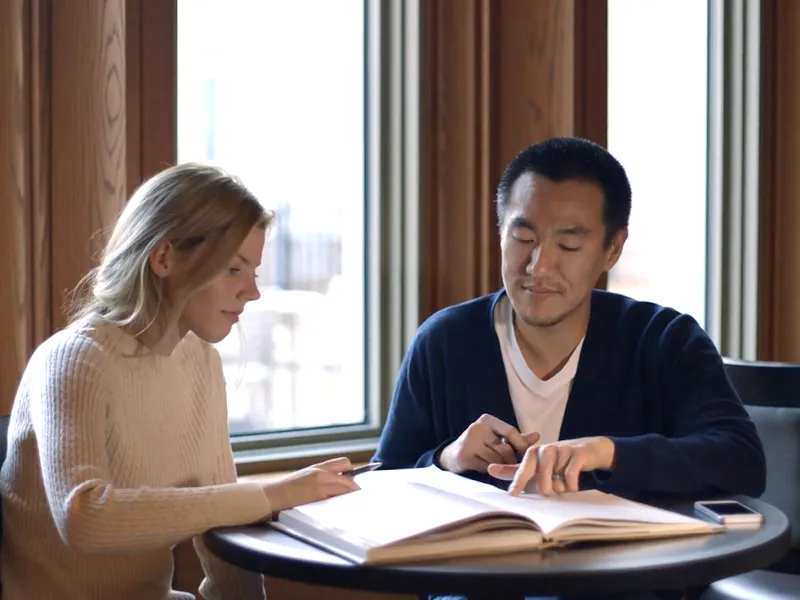
Studying abroad offers students a unique opportunity to gain international experience, broaden their perspectives, and build a global network. One of the emerging destinations for international study is Georgia, a country located at the crossroads of Europe and Asia. Georgia offers high-quality education, affordable tuition fees, and a rich cultural heritage. This article will explore how students can build a global network while studying in Georgia, highlighting the benefits and strategies for maximizing this experience.
The Appeal of Studying in Georgia
High-Quality Education
Georgia has invested heavily in its education system, offering a range of programs in English across various disciplines. Georgian universities such as Tbilisi State Medical University, Ivane Javakhishvili Tbilisi State University, and Georgian Technical University have garnered international recognition for their academic excellence. The emphasis on practical learning and research opportunities makes Georgian education particularly appealing to international students.
Affordable Tuition Fees and Living Costs
Compared to Western countries, the cost of education and living in Georgia is significantly lower. This affordability attracts students from diverse economic backgrounds, contributing to a multicultural environment. Students can enjoy a high standard of living without incurring massive debts, making Georgia an attractive destination for higher education.
Cultural Richness and Historical Significance
Georgia’s rich history, vibrant culture, and stunning landscapes provide an enriching backdrop for international students. The country’s unique position at the intersection of Eastern and Western cultures offers students a unique cultural experience. Festivals, traditional music, dance, and cuisine add to the vibrant student life, allowing students to immerse themselves in a new cultural milieu.
Building a Global Network: Strategies and Opportunities
Participating in University Activities and Clubs
Most Georgian universities offer a variety of student clubs and organizations that cater to diverse interests, including academic, cultural, and social groups. Joining these clubs provides an excellent platform for meeting fellow students from different countries. Active participation in university activities not only helps in building friendships but also enhances leadership and organizational skills.
Leveraging Academic Collaborations
Many Georgian universities have partnerships with institutions around the world. Students can take advantage of exchange programs, joint research projects, and international conferences to expand their academic network. These collaborations often lead to long-lasting professional relationships and open doors for future career opportunities.
Engaging with Local Communities
Engaging with the local community is another effective way to build a global network. Volunteering for community projects, participating in cultural events, and learning the Georgian language can help international students integrate better and build meaningful connections. Local friendships offer a deeper understanding of Georgian culture and society, enriching the overall study abroad experience.
Utilizing Social Media and Networking Platforms
In today’s digital age, social media and professional networking platforms like LinkedIn play a crucial role in building and maintaining global networks. Students should actively use these platforms to connect with peers, professors, and industry professionals. Sharing academic achievements, participating in online discussions, and joining relevant groups can significantly enhance one’s global presence.
The Role of Internships and Part-Time Jobs
Gaining Practical Experience
Internships and part-time jobs offer students practical experience in their field of study and an opportunity to expand their professional network. Many Georgian universities have career services that help students find internships with local and international companies. These experiences provide valuable insights into the professional world and help students establish contacts that could be beneficial for their future careers.
Building Professional Relationships
Working alongside professionals in a real-world setting allows students to build relationships with mentors and industry leaders. These connections can offer guidance, support, and references that are crucial for career advancement. Moreover, working in a multicultural environment helps in developing cross-cultural communication skills, which are highly valued in today’s globalized job market.
Enhancing Global Perspective Through Travel
Exploring Neighboring Countries
Georgia’s strategic location makes it easy for students to travel and explore neighboring countries such as Turkey, Armenia, Azerbaijan, and Russia. Traveling enhances cultural understanding and provides opportunities to meet people from different backgrounds. Each travel experience adds to the global network, offering new perspectives and friendships.
Participating in International Student Conferences
Many organizations and universities host international student conferences that focus on various academic and professional themes. Attending these conferences allows students to present their research, participate in workshops, and network with peers from around the world. These events are excellent platforms for sharing knowledge, gaining insights, and building professional relationships.
The Importance of Language Learning
Mastering English and Georgian
While many programs in Georgia are offered in English, learning the Georgian language can greatly enhance the study abroad experience. Language proficiency helps in better understanding the local culture and communicating effectively with locals. Additionally, mastering English ensures that students can communicate with peers from other countries, making it easier to build a global network.
Learning Other Languages
Being multilingual is a significant advantage in today’s globalized world. Students should consider learning other languages, such as Russian, which is widely spoken in the region. Knowing multiple languages opens up more opportunities for networking and career advancement, as it allows students to connect with a broader range of people.
Alumni Networks: A Lifelong Resource
Joining Alumni Associations
Most universities have alumni associations that connect graduates from different years and programs. Joining these associations provides access to a vast network of professionals who can offer support, advice, and opportunities. Alumni networks are valuable resources for career development and professional growth.
Participating in Alumni Events
Alumni events, such as reunions, seminars, and workshops, offer opportunities to reconnect with former classmates and professors. These events are excellent for maintaining and expanding one’s network, sharing experiences, and exploring new opportunities. Active participation in alumni activities ensures that students remain connected to their alma mater and its global community.
Overcoming Challenges in Building a Global Network
Navigating Cultural Differences
One of the main challenges in building a global network is navigating cultural differences. Students should approach these differences with an open mind and a willingness to learn. Understanding and respecting diverse perspectives is crucial for building strong and meaningful relationships.
Managing Time and Commitments
Balancing academic responsibilities, social activities, and networking efforts can be challenging. Effective time management is essential to ensure that students can engage in networking activities without compromising their academic performance. Prioritizing and planning can help in managing these commitments efficiently.
Dealing with Language Barriers
Language barriers can hinder effective communication and networking. Students should actively work on improving their language skills and seek help when needed. Participating in language exchange programs and using language learning apps can be beneficial in overcoming these barriers.
Conclusion
Building a global network while studying in Georgia offers immense benefits that extend beyond academic achievements. By actively participating in university activities, engaging with local communities, leveraging digital platforms, and taking advantage of internships and travel opportunities, students can create a diverse and robust network. This network not only enriches their study abroad experience but also provides valuable resources and connections for their future careers. Embracing the challenges and opportunities of studying in Georgia will pave the way for a fulfilling and globally connected life.






